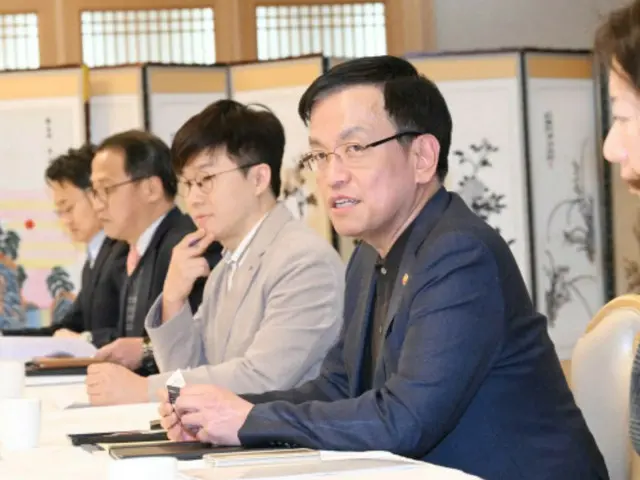``Based on this, we will proactively implement policies to improve shareholder value and corporate value that will eliminate the low evaluation of South Korea's stock market, and increase the dynamism of the entire economy.''
On the afternoon of the 7th, Vice Prime Minister Choi met with economics expert Professor Park Sang-joon of Waseda University and Kim Gyu-pan, a senior research fellow at the Institute of Foreign Economics, at the South Korean government building in Seoul.
He met with experts such as Bar's Jeon Seok-jae and presided over the ``Japanese Economic Experts' Meeting.'' At this meeting, Vice Prime Minister Choi talked about the recent boom in Japan's stock market and its long-term slump.
We focused on the possibility of escaping from the chief. They also discussed aspects that have implications for the Korean economy, such as the supply of human resources to cope with the declining birthrate and responses to youth issues.
On the 30th of last month, the International Monetary Fund (IMF) predicted Japan's economic growth rate in 2023 to be 1.9% in its ``January World Economic Outlook''. This is South Korea (1.4%
), which is of course higher than the average for other developed countries (1.6%). In addition, the Nikkei 225 index, which represents Japan's stock index, has been around since February 1990, just before the bursting of the bubble economy.
The market is booming, reaching its highest level in 34 years. Regarding this, the Japanese economy has been evaluated as having the potential to break out of the long-term low growth phase known as the "lost 30 years."
ing. Attendees at this day's meeting said that while the macro requirement of a weak yen was in place, structural factors such as efforts to improve corporate structure and resolve population issues were operating in a complex manner.
The diagnosis was that it was the result of Furthermore, measures such as improving corporate governance structures and actively promoting shareholder returns, which Japan has been working on since 2014, are credited with contributing to the recent boom in the securities market.
did. Since 2014, the Japanese government has been actively promoting improvements to corporate governance (control structure) as part of "Abenomics." A steward who clarifies the responsibilities of institutional investors.
With the introduction of the Dossip Code, Japanese companies strengthened measures to return profits to shareholders, such as share buybacks and dividends, guaranteed the independence of boards of directors, and led to improvements in their control structures.
In addition, Japan has been making efforts to expand employment in response to population and social issues such as the declining birthrate and the advancement of women into the workforce.
Ta. However, experts expressed the view that although women's participation rate in economic activities has increased, the final effect needs to be confirmed over the long term.
The meeting also focused on the "new capitalism" policy that Japan's Kishida Cabinet has been promoting since 2022. Japan is
An expert consultation mechanism has been established to adjust the market structure, and efforts are being made to strengthen the competitiveness of small and medium-sized enterprises. Experts recommended that we should also pay attention to such policies.
Vice Prime Minister Choi is also paying close attention to these Japanese policies, and this month he will disclose industry-specific financial indicators and plans to improve the value of listed companies, and will launch a listed index fund that selects excellent companies.
The company announced that it will create a ``corporate value enhancement program'' that will include the development of (ETF). Vice Prime Minister Choi said, ``We will resolve the 'Korea discount' and fundamentally improve the structure of the capital market.
``We plan to respond by focusing on three axes: increasing shareholder value, establishing fair order, and expanding the demand base.''
Vice Prime Minister Choi also said, ``Even after small and medium-sized enterprises grow into medium-sized companies, the application of conventional fiscal special measures will not be applied.''
"We will extend the special period from three years to five years so that people can continue to receive the benefits, and we will also promote the revision of the enforcement order for the special tax system." In addition, we will proactively address the population crisis by creating conditions for balancing work and family life.
In response, the company added that it will prepare detailed support measures to cover the entire process of childbirth and childcare and will announce them soon.
2024/02/08 07:04 KST
Copyrights(C) Edaily wowkorea.jp 107

